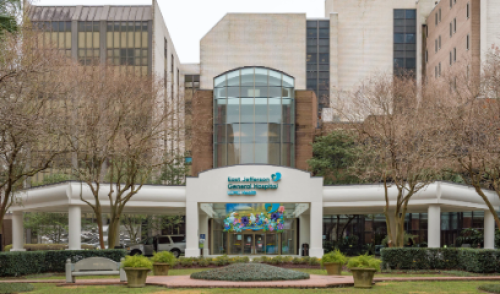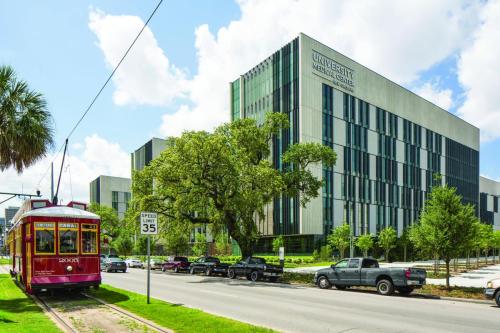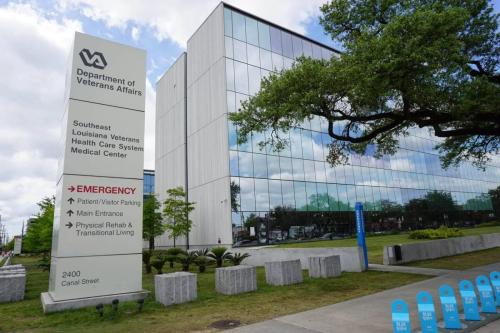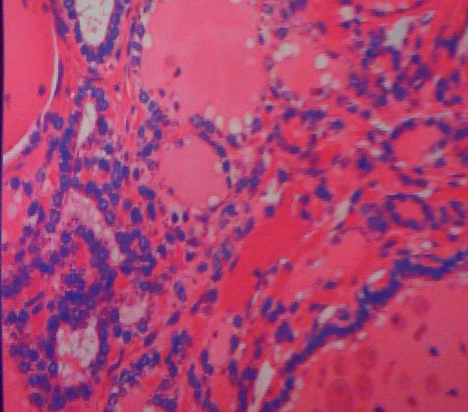Training sites:
East Jefferson General Hospital (EJGH; private facility): A well-regarded medical facility offering comprehensive healthcare services. Known for its specialized care, EJGH provides advanced treatments in areas such as surgery, cardiology, oncology, and neurology. With a focus on community health and patient-centered care, it serves as a trusted healthcare provider in the region.

Tulane’s Center for Clinical Research (TCCR): Provides support for the translation of research from bench science to community health and provides insight into our perspective on internal and external determinants and health outcomes.
University Medical Center New Orleans (UMCNO; state facility): A busy level 1 trauma center, and a safety net institution for many in South Louisiana. There is no scarcity of endocrine emergencies handled by the inpatient service. The outpatient clinics see a broad scope of general endocrinology with close collaboration with nuclear medicine, interventional radiology, neuroendocrine and neurosurgery, and endocrine and bariatric surgery.

New Orleans VA Medical Center (VA; federal facility): Offers a wide range of endocrinology and related services for Veterans throughout 23 parishes in southeast Louisiana. In addition to the exposure to a wide range of endocrine and related disorders at the VA site, the fellows have an opportunity to experience ongoing video visit clinics, a true multidisciplinary diabetes team (which includes a weight management program, clinical pharmacist, diabetes educators, and mental health professionals) and fine needle aspiration clinic.

At Tulane University's Endocrinology Fellowship program, our goal is to continue to grow and evolve to best meet the needs of our trainees and produce not only greatly skilled endocrinologists but also professionals who will make contributions to medical knowledge and will become future leaders in their fields. I am very proud of our program and our extraordinary and dedicated faculty. Our alumni go on to both private practice and academic positions. Many of our faculty and the faculty at UMC and the VA are alumni of the Tulane Endocrinology fellowship program.

Tumor Board --A multi-specialty joint conference with endocrinology, general and endocrine surgery, radiology, pathology, and other specialties which is directed by the head of endocrine surgery, Emad Kandil, MD. The conference is held on the 4th Wednesday of each month at Tulane's Cancer Center where slides can be viewed using the most technically advanced equipment. Endocrine fellows and other members of the team provide and examine challenging endocrine pathologies.
Endocrine University --Each March, the program director nominates senior fellows to attend a week at Endocrine University held at the Mayo Clinic in Rochester NY. Sponsored by the American Association of Clinical Endocrinologists (AACE) and the Mayo Clinic Division of endocrinology, the curriculum is designed to help prepare fellows for entering clinical practice with the coverage of topics such as thyroid ultrasound and fine needle aspiration, bone, endocrine laboratory and genetic testing, insulin pump and sensor hands-on instruction, practice management issues, and meet the expect sessions.
Endocrine Society In-Service Exam--Each April, both PGY 4s and 5s are enrolled in the Endocrine Society's Self-Assessment Program-In Training Exam. Although designed for second-year clinical endocrine fellows, first year trainees benefit as well from exposure to the topics and the types of questions that appear on the ABIM certifying exam in endocrinology. Exam results include full answers to all exam questions and may serve as an excellent learning and review tool for trainees.
Teaching--Fellows interact with residents and students in a supervisory/teaching capacity in clinic and and reinforce their own training in the course of this interaction. Along with issuing assignments and guiding students during endocrine clinics and inpatient rounds, fellows are encouraged to rehearse their own presentations before residents/students as preface to formal presentation before faculty and/or a larger audience at national meetings. Fellows also have the opportunity of teaching patients in a group setting once a month at TUHC's Diabetes Education Center.
